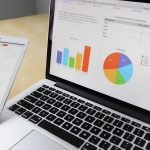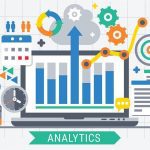In recent years, it's become patently obvious that website optimization is the best way to jump up the rankings and put your website in the best position possible for the future. With the likes of Google Analytics, we can check the areas that need improvement and keep optimizing the website until a good number of people are visiting and clicking through the pages on a daily … [Read more...] about How Website Optimization Can Help to Manage Constant Data Analytics
Big Data
Learn everything you need to know about big data. Find out how companies are using this revolutionary technology and what it means for your business strategy.
3 Big Data Privacy Risks and What They Mean to Everyday Users
When the internet was conceived, many people believed it was the pinnacle of digital communications. It enabled users to share information despite being continents away seamlessly. And as the online repository of unstructured data grew to a massive scale, technology pioneers began connecting the dots and took digital information-sharing to a whole new level. Today, big data has … [Read more...] about 3 Big Data Privacy Risks and What They Mean to Everyday Users
Your Guide to Managing and Implementing Big Data Platforms
Big data today is the fuel and driving force of any business growth. A company's ability to hit the right solutions at the right time may only be possible with the help of big data platforms. A company may not be able to achieve its goals and achievements regarding sale if it can't understand how the market is responding, how its products are delivered and how everything is in … [Read more...] about Your Guide to Managing and Implementing Big Data Platforms
No, Not Everyone Needs To Understand Analytics
The breadth of analytics has certainly increased in recent years. So, too, has the pool of people who dip their toe into creating analytics of one sort or the other. The trends toward democratization of data and self-service analytical capabilities are powerful and both have driven a lot of value for organizations in recent years. At the same time, it is possible to go too far. … [Read more...] about No, Not Everyone Needs To Understand Analytics
Top Four Competencies a Data Scientist Should Have
Jobs in the niche of data science is quite lucrative in terms of fat-pay package and adequate job exposure. But the role of a data scientist may slightly vary from one company to other. For example, in the Indian job market, almost every Java software development company that deals with data science and data management, recruits data scientists but the role may vary depending … [Read more...] about Top Four Competencies a Data Scientist Should Have
What is big data?
Big data is a term that refers to the massive amount of digital data created and shared every day. Big data can transform how we live, work, and communicate. It can be used to improve everything from public health and urban planning to business and marketing.
Big data is also changing the way we think about privacy and security. The volume, velocity, and variety of big data present challenges and opportunities for organizations and individuals. Regardless, big data is here to stay, and its impact will only continue to grow in the years to come.
What is big data analytics?
Big data analytics is the process of turning large, complex data sets into actionable insights. Businesses use various analytical tools and techniques, including machine learning and statistical analysis, to do this.
Big data analytics can be used to improve decision-making in areas like marketing, operations, and customer service. It can also be used to identify new business opportunities and optimize existing processes. With the help of big data analysis, businesses can gain a competitive edge by using their data better.
Want to learn more about big data? Datafloq has courses available. Contact us to get started.
When was big data introduced?
The term big data was coined in the 1990s, with some giving credit to John Mashey for popularizing the term. However, the concept of big data has been around for much longer.
Where does big data come from?
In the early days of computing, scientists and businesses began to realize that the amount of data being generated was increasing exponentially. As a result, they began to develop new methods for storing and processing data.
Over time, these methods have become increasingly sophisticated and have played a key role in enabling businesses to make sense of vast amounts of information. Today, big data is used in various industries, from retail to healthcare, and its importance is only likely to grow in the years to come.
What are examples of big data?
One of the most common examples of big data is social media data. With over 2 billion active users, Facebook generates a huge amount of data every day. This includes information on user interactions, posts, and even location data. Analyzing this data can help companies better understand their customers and target their marketing efforts.
Another example of big data is GPS signals. These signals are constantly being generated by devices like cell phones and fitness trackers. When combined with other data sets, GPS signals can be used to provide insights into everything from traffic patterns to human behavior. Finally, weather patterns are another type of big data set. By tracking these patterns over time, scientists can better understand the impact of climate change and develop strategies for mitigating its effects.
How do companies use big data?
Companies use big data in marketing, product development, and customer service. By analyzing large data sets, businesses can identify patterns and trends that would be otherwise difficult to spot. For example, a company might use big data to track customer behavior patterns to improve its marketing efforts.
Alternatively, a company might use big data to improve its products by identifying areas where customers are most likely to experience problems. For instance, big data can be used to improve customer service by finding pain points in the customer journey. Ultimately, big data provides companies with a valuable tool for gaining insights into their business operations.






